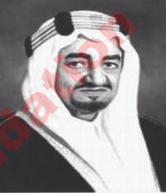
Shah Faisal Bin Abdul Aziz
Shah Faisal bin Abdul Aziz, also known as King Faisal, was a transformative and visionary leader who significantly shaped the course of Saudi Arabia’s history and its role in the international arena. His reign, marked by modernization, economic development, and assertive diplomacy, left an indelible mark on the Kingdom and the broader Middle East. This article explores the life, achievements, and legacy of King Faisal.
Early Life and Ascension
Born on April 14, 1906, in Riyadh, Shah Faisal was the third son of King Abdul Aziz Al Saud, the founder of modern Saudi Arabia. Educated in both Islamic studies and the principles of governance, Faisal developed a deep understanding of his country’s needs and challenges from an early age.
In 1953, following the death of his half-brother, King Saud, Faisal ascended to the throne of Saudi Arabia. He inherited a country facing significant economic and political challenges but was determined to lead it toward progress and modernization.
Economic Transformation
One of King Faisal’s most remarkable achievements was his successful management of Saudi Arabia’s economy:
Oil Industry: Faisal recognized the immense potential of the oil industry and played a pivotal role in nationalizing Saudi Arabia’s oil resources. Under his leadership, the Kingdom took control of the Arabian American Oil Company (ARAMCO) in 1973, becoming a major player in the global energy market.
Economic Diversification: King Faisal implemented economic diversification policies, using oil revenues to invest in infrastructure, education, and healthcare. This approach laid the foundation for Saudi Arabia’s modern economy.
Education and Healthcare: Faisal’s reign saw significant investments in education and healthcare, leading to the establishment of schools, universities, and healthcare facilities across the Kingdom.
Foreign Policy and Diplomacy
King Faisal was known for his pragmatic and assertive approach to foreign policy:
Arab Unity: He advocated for Arab unity and supported pan-Arab causes, including the Palestinian struggle for self-determination. Saudi Arabia became a key player in the Arab-Israeli conflict during his reign.
OPEC Leadership: Faisal played a central role in the formation of the Organization of Petroleum Exporting Countries (OPEC) and used the organization to assert Saudi Arabia’s influence in global oil politics.
Relations with the West: While maintaining close relations with Western countries, particularly the United States, Faisal also sought to balance Saudi Arabia’s ties in the region.
Assassination and Legacy
On March 25, 1975, King Faisal was tragically assassinated by his nephew, Prince Faisal bin Musaid. His death marked a significant loss for Saudi Arabia and the entire Arab world.
King Faisal left behind a legacy of modernization, economic development, and a commitment to Islamic values. His policies laid the groundwork for Saudi Arabia’s transformation into a modern and prosperous nation. His influence in regional and global politics continues to shape Saudi Arabia’s diplomatic approach and its role in addressing critical regional issues.
In conclusion, Shah Faisal bin Abdul Aziz was a visionary leader who dedicated his life to the progress and well-being of Saudi Arabia and the Arab world. His legacy as a reformer, diplomat, and advocate for Arab unity endures, and his impact on the Kingdom’s modern history is celebrated to this day.

